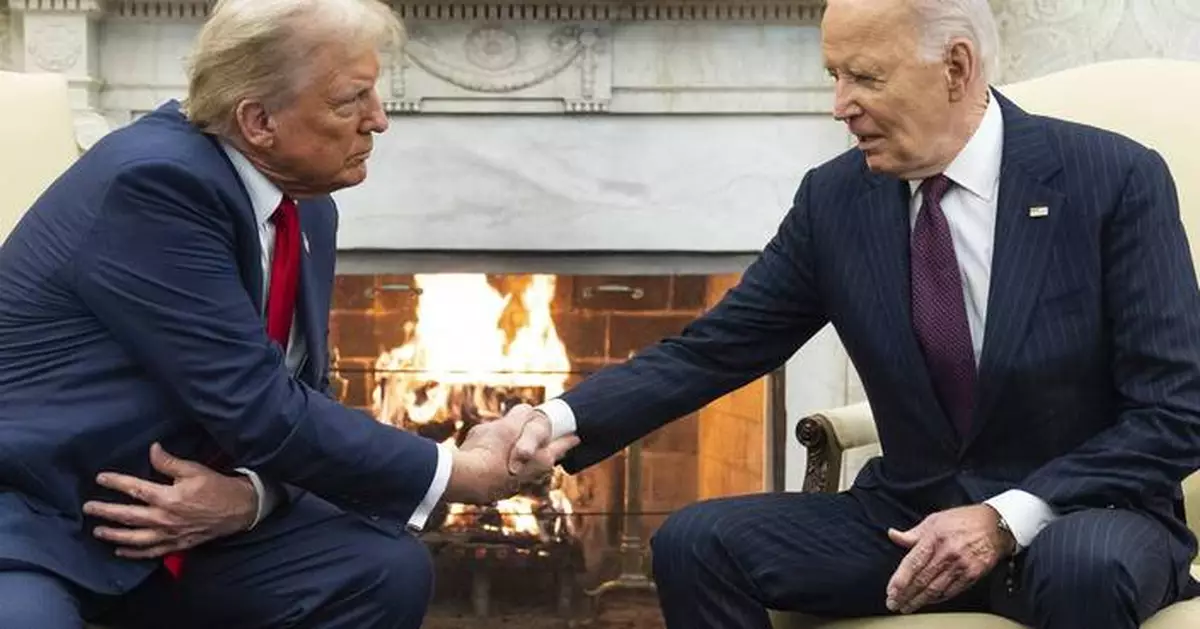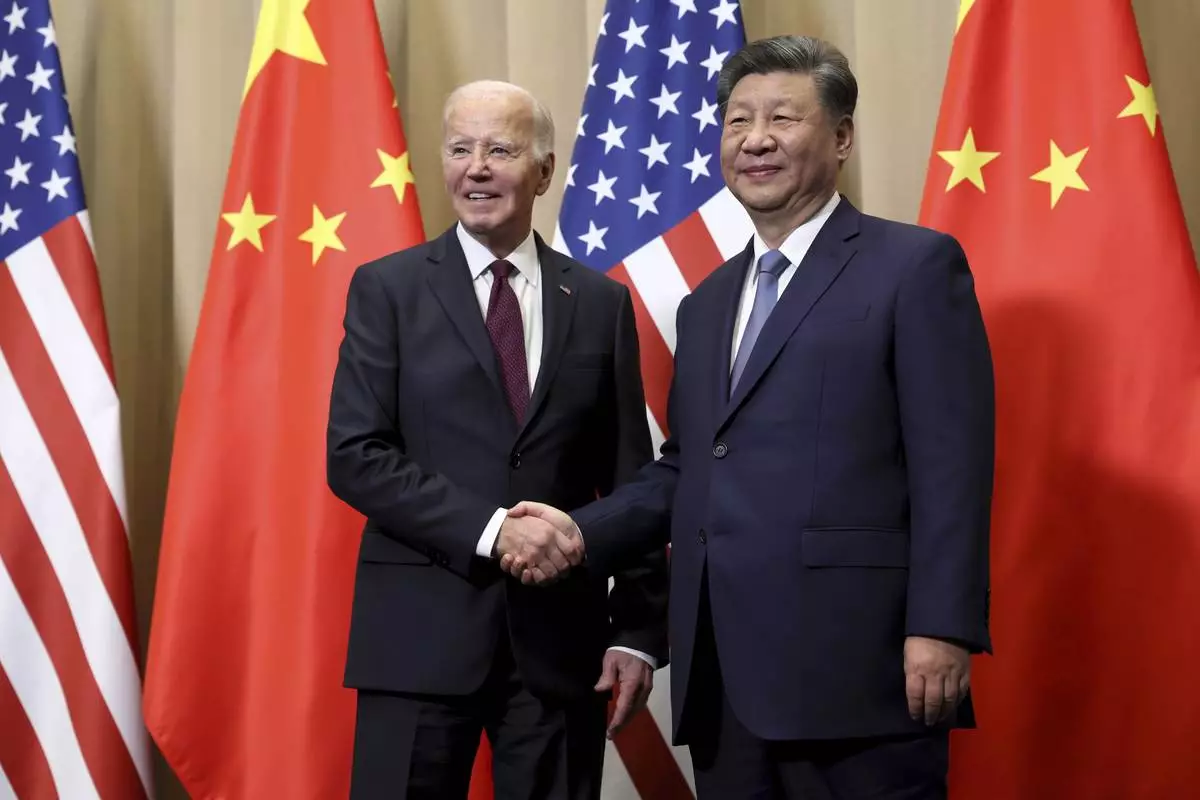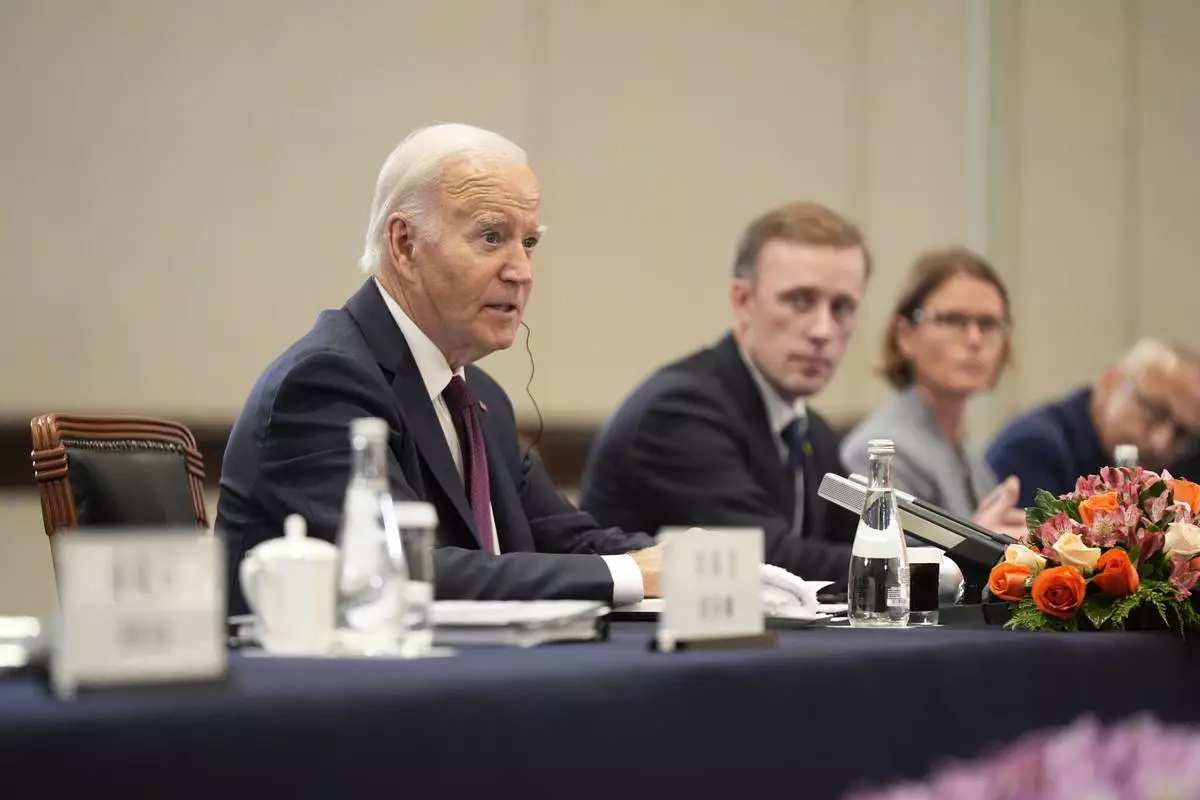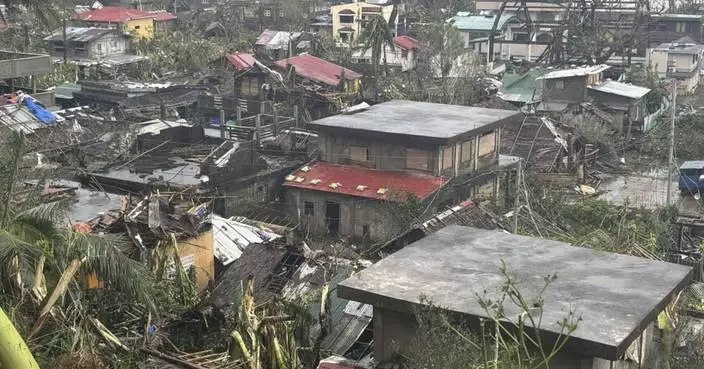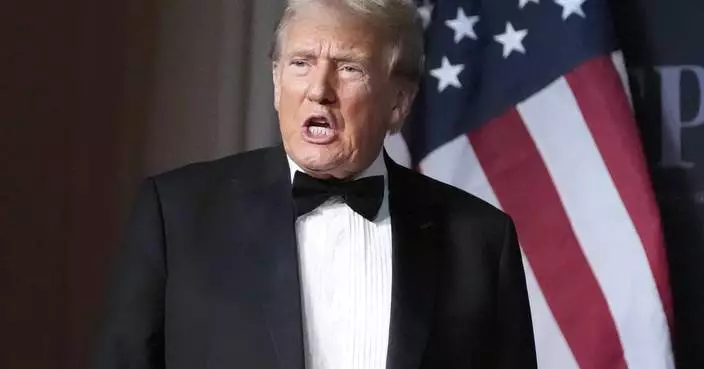BANGKOK (AP) — Whether on the left or the right, regardless of how long they’ve been in power, sitting governments around the world have been drubbed this year by disgruntled voters in what has been called the “super year” for elections.
Donald Trump's victory in the U.S. presidential election was just the latest in a long line of losses for incumbent parties in 2024, with people in some 70 countries accounting for about half the world's population going to the polls.
Issues driving voter discontent have varied widely, though there has been almost universal malaise since the COVID-19 pandemic as people and businesses struggle to get back on their feet while facing stubbornly high prices, cash-strapped governments and a surge in migration.
“There’s an overall sense of frustration with political elites, viewing them as out of touch, that cuts across ideological lines,” said Richard Wike, director of global attitudes research at the Pew Research Center.
He noted that a Pew poll of 24 countries found that the appeal of democracy itself was slipping as voters reported increasing economic distress and a sense that no political faction truly represents them.
“Lots of factors are driving this,” Wike said, “but certainly feelings about the economy and inflation are a big factor.”
Since the pandemic hit in 2020, incumbents have been removed from office in 40 of 54 elections in Western democracies, said Steven Levitsky, a political scientist at Harvard University, revealing "a huge incumbent disadvantage.”
In Britain, the right-of-center Conservatives suffered their worst result since 1832 in July’s election, which returned the center-left Labour Party to power after 14 years.
But just across the English Channel, the far right rocked the governing parties of France and Germany, the European Union's biggest and most powerful members, in June elections for the parliament of the 27-nation bloc.
The results pushed French President Emmanuel Macron to call a parliamentary election in hope of stemming a far-right surge at home. The anti-immigration National Rally party won the first round, but alliances and tactical voting knocked it down to third place in the second round, producing a fragile government atop a divided legislature.
In Asia, a group of South Korean liberal opposition parties, led by the Democratic Party, defeated the ruling conservative People Power Party in April’s parliamentary elections.
India’s Narendra Modi, meanwhile, had been widely expected to easily sweep to a third straight term in June but instead voters turned away from his Hindu nationalist Bharatiya Janata Party in droves, costing it its majority in parliament, though it was able to remain in power with the help of allies.
Likewise, Japanese voters in October punished the Liberal Democratic Party, which has governed the country nearly without interruption since 1955.
Japanese Prime Minister Shigeru Ishiba will stay in power, but the greater-than-expected loss ended the LDP’s one-sided rule, giving the opposition a chance to achieve policy changes long opposed by the conservatives.
“If you were to ask me to explain Japan in a vacuum, that’s not too difficult,” said Paul Nadeau, an adjunct assistant professor at Temple University’s Japan campus in Tokyo.
“Voters were punishing an incumbent party for a corruption scandal, and this gave them a chance to express a lot more frustrations that they already had.”
Globally, however, it's harder to draw conclusions.
“This is pretty consistent across different situations, different countries, different elections — incumbents are getting a crack on the shins,” he said. “And I don’t have any good big picture explanations for why that is.”
Rob Ford, professor of political science at the University of Manchester, said inflation has been a major driver of "the greatest wave of anti-incumbent voting ever seen” — though the reasons behind the backlash may also be “broader and more diffuse.”
“It could be something directly to do with the long-term effects of the COVID pandemic — a big wave of ill health, disrupted education, disrupted workplace experiences and so forth making people less happy everywhere, and they are taking it out on governments,” he said.
"A kind of electoral long COVID.”
In South Africa, high unemployment and inequality helped drive a dramatic loss of support for the African National Congress, which had governed for three decades since the end of the apartheid system of white minority rule. The party once led by Nelson Mandela lost its parliamentary majority in May’s election and was forced to go into coalition with opposition parties.
Other elections in Africa presented a mixed picture, said Alex Vines, director of the African Program at the international affairs think tank Chatham House, partially clouded by countries with authoritarian leaders whose reelections were not in doubt, like Rwanda’s long-serving President Paul Kagame who got 99% of the vote.
In African countries with strong democratic institutions, however, the pattern of incumbents being punished holds, Vines said.
“The countries with stronger institutions — South Africa, Senegal, Botswana — have witnessed either a government of national unity or change of party of government,” he said.
In Botswana, voters unexpectedly ejected a party that had ruled for 58 years since independence from Britain in an October election.
Vines said that across the continent, “you’ve got this electorate now who have no memory of decolonization or the end of apartheid and so have different priorities, who are also feeling the cost-of-living pressures.”
In Latin America, one major country stands out for bucking the anti-incumbent wave – Mexico.
Andrés Manuel López Obrador, limited to a single term, selected Claudia Sheinbaum, a member of his party, to succeed him. Sheinbaum easily won the presidency in June’s election.
Wike noted that Mexico is one of the few countries in Pew’s survey where voters reported satisfaction with economic conditions.
Some newcomers to office have already found that the honeymoon following their victories has been short, as people have rapidly turned on them.
British Prime Minister Keir Starmer has seen his approval ratings plummet from a jaded electorate that wants lower prices and better public services — but is deeply skeptical of politicians’ intention and ability to deliver change.
Ford, of the University of Manchester, said it's a problem for democracy when voters, whose task is to hold governments to account, are so quick to pass judgment.
“If voters are the electoral equivalent of a hanging judge, putting politicians to the gallows whether they be guilty or innocent, then what incentive is there for governments to try?” he asked. "The angels and the devils get chucked out alike, but being an angel is harder.”
Trump first came to power as a challenger in the 2016 election, and then lost as an incumbent in the 2020 election to Joe Biden. This year, he defeated Biden's vice president, Kamala Harris, who stepped in late in the race when the president unexpectedly dropped out.
Trump's win is one of the conservative populist movement's highest-profile triumphs. But another icon of the cause, Hungarian Prime Minister Viktor Orbán, saw his own party suffer its worst showing in decades in this year's European Union election, demonstrating that no movement is safe from backlash.
Nadeau, of Temple University, suggested that perhaps analysts had previously misunderstood global electoral trends — parsing them as ideological shifts — “when all along it was actually an anti-incumbent mood.”
“Maybe it has always been anti-incumbent, and we were just misdiagnosing it,” he said.
Lawless reported from London and Riccardi from Denver, Colorado.
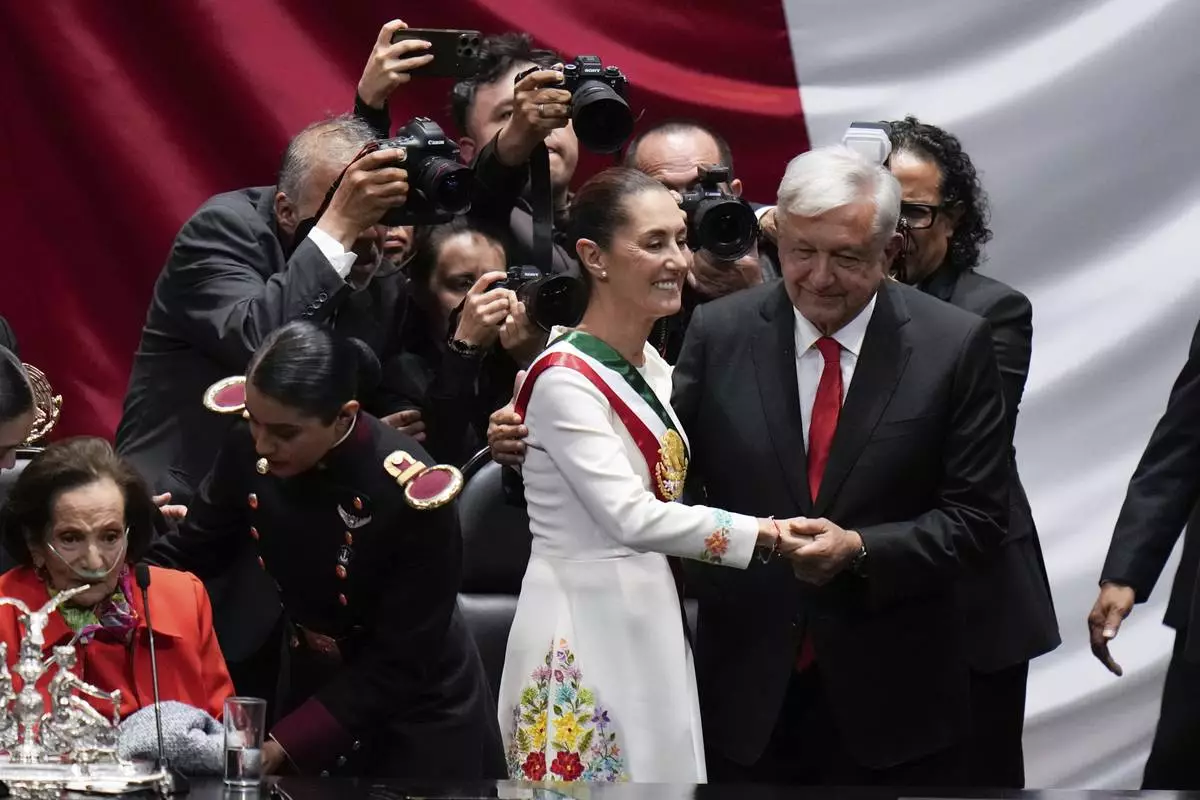
FILE - President Claudia Sheinbaum holds hands with outgoing President Andres Manuel López Obrador after taking the oath of office in the lower chamber of Congress, in Mexico City, Tuesday, Oct. 1, 2024. (AP Photo/Eduardo Verdugo, file)
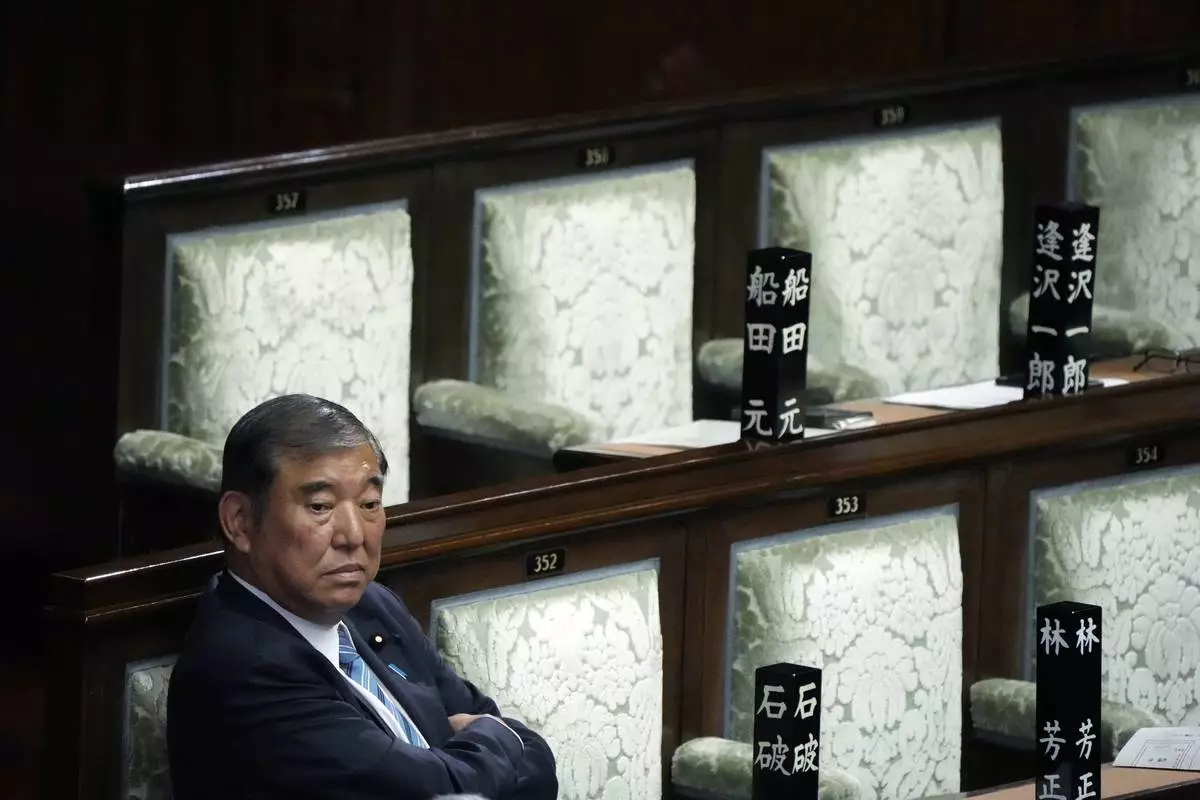
FILE - Japanese Prime Minister Shigeru Ishiba waits after the first vote for a new prime minister at a special parliamentary session of the lower house Monday, Nov. 11, 2024, in Tokyo. (AP Photo/Eugene Hoshiko, file)
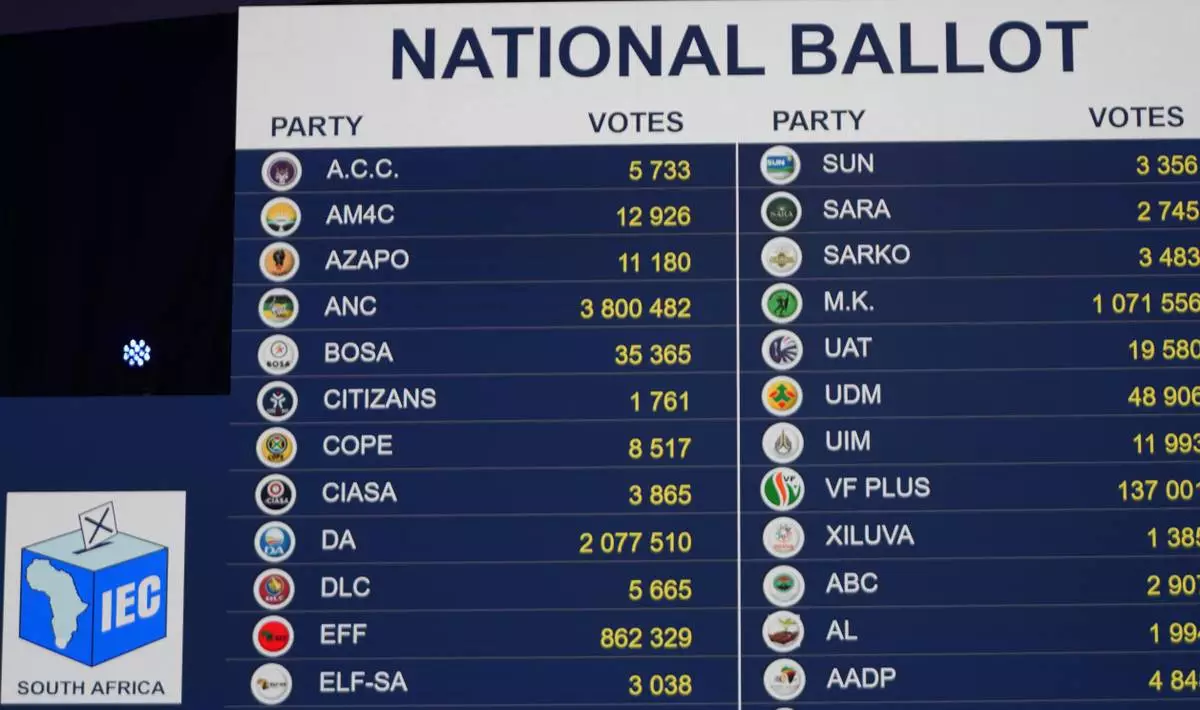
FILE - Partial results in South Africa’s election are displayed in Midland, Johannesburg, Friday, May 31, 2024. (AP Photo/Themba Hadebe, file)
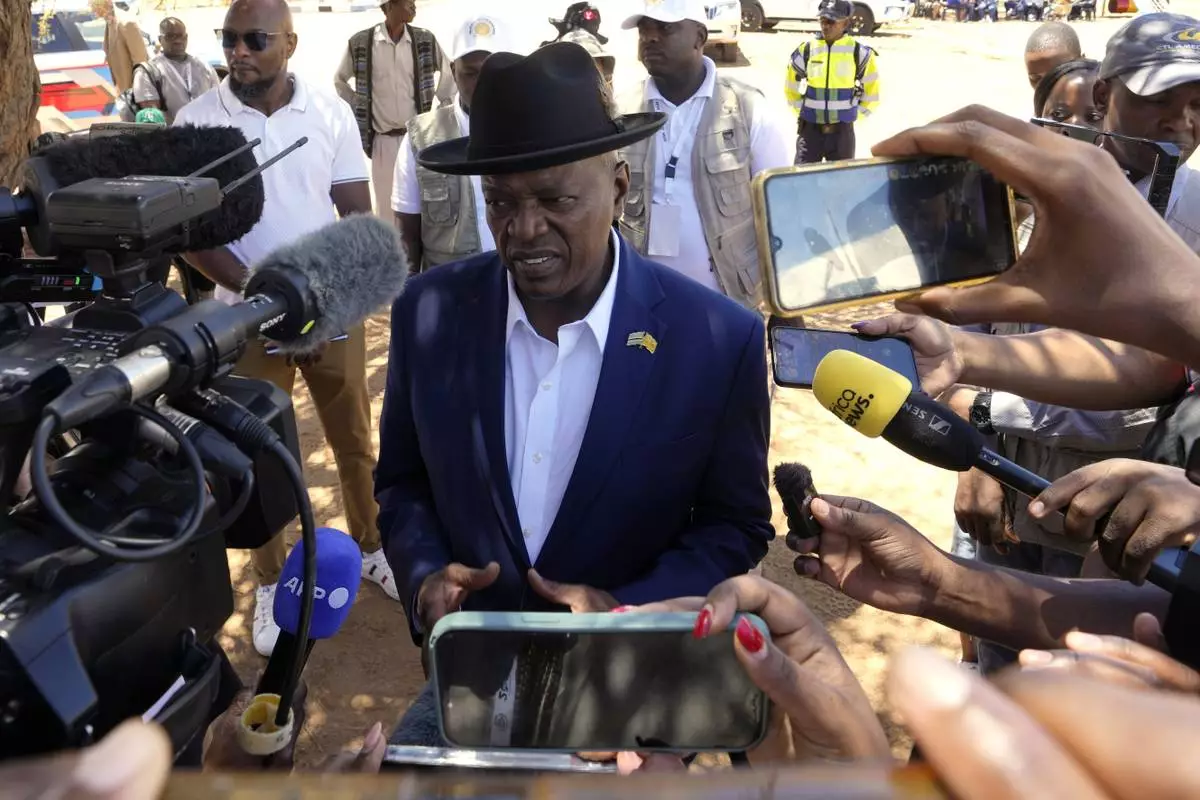
FILE - President Mokgweetsi Masisi of Botswana speaks to journalists after casting his vote during the elections at Mosielele primary school in Moshupa village, Southern District, Wednesday, Oct. 30, 2024. (AP Photo/Themba Hadebe, file)
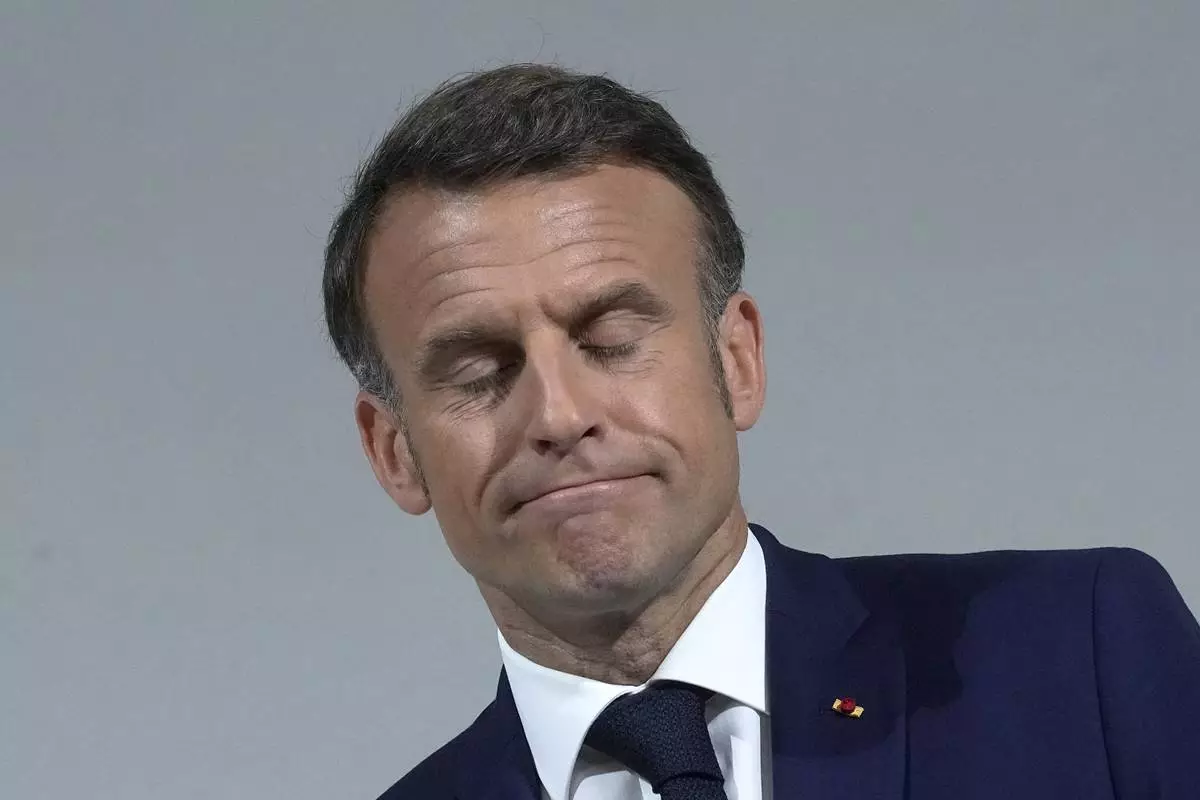
FILE - French President Emmanuel Macron reacts as he delivers a speech, Wednesday, June 12, 2024 in Paris. (AP Photo/Michel Euler, file)
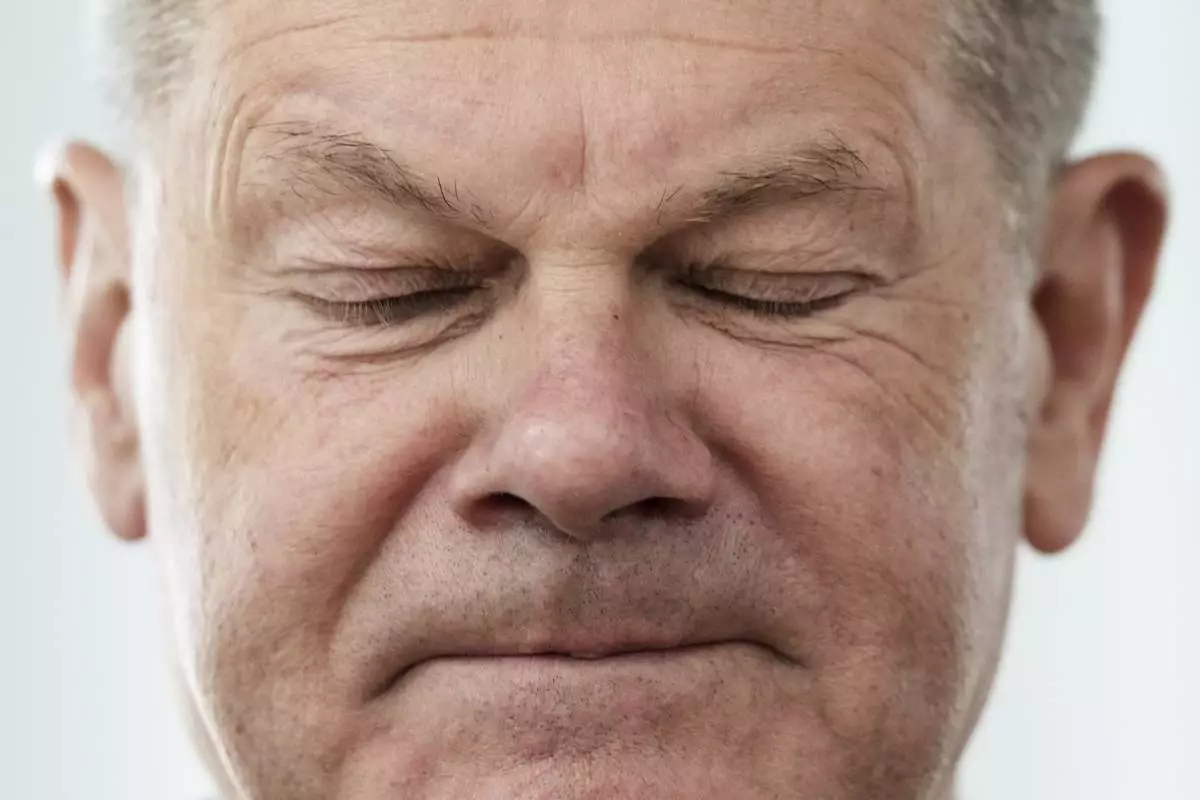
FILE - German Chancellor Olaf Scholz arrives at the Social Democratic Party's headquarters in Berlin for a meeting on Monday, June 10, 2024, following the European elections. (AP Photo/Markus Schreiber, Pool, file)
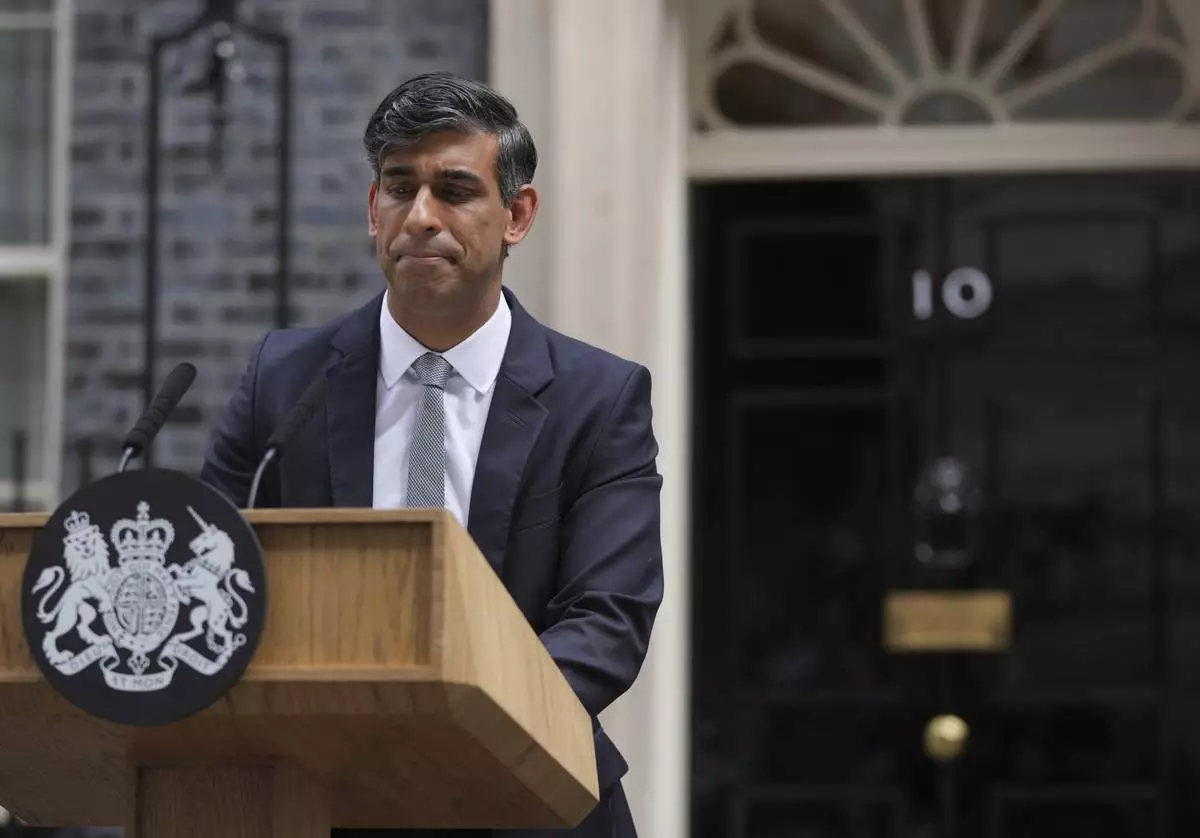
FILE - Britain's outgoing Conservative Party Prime Minister Rishi Sunak looks down as he makes a short speech outside 10 Downing Street before going to see King Charles III to tender his resignation in London, Friday, July 5, 2024. (AP Photo/Kin Cheung, file)
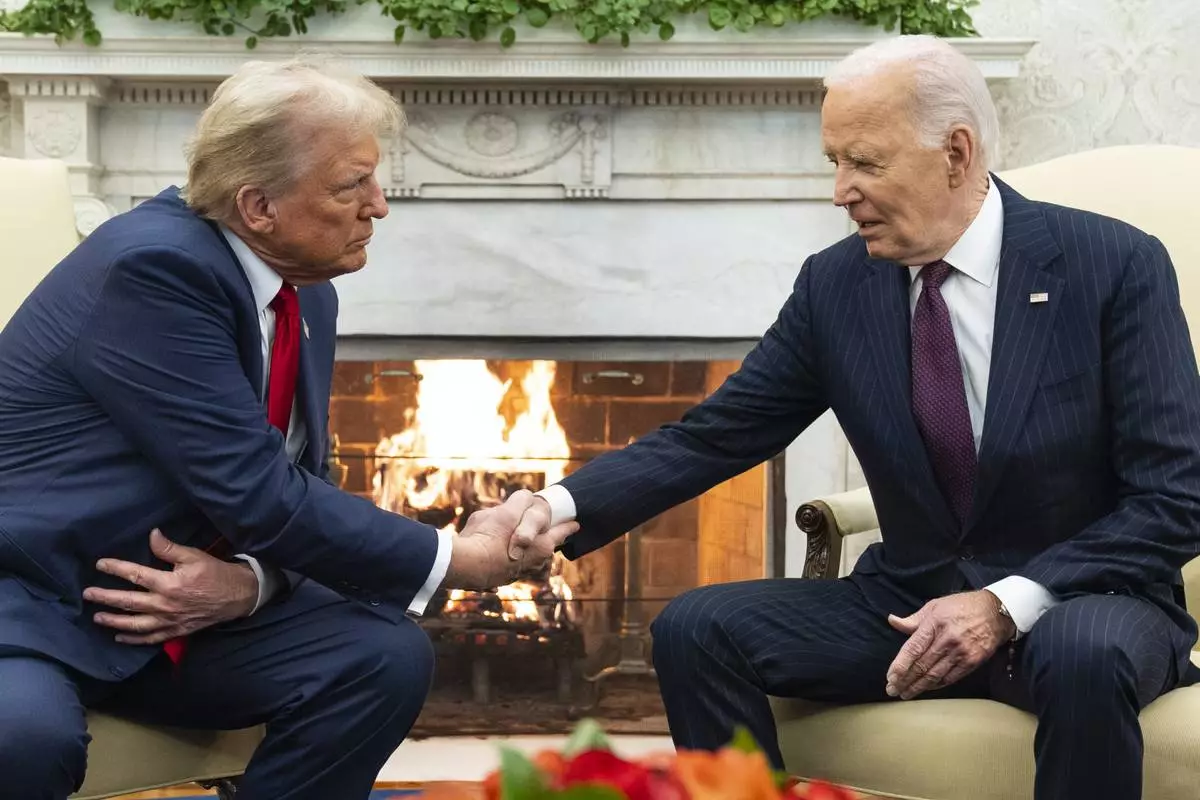
FILE - President Joe Biden meets with President-elect Donald Trump in the Oval Office of the White House, Wednesday, Nov. 13, 2024, in Washington. (AP Photo/Evan Vucci, file)


